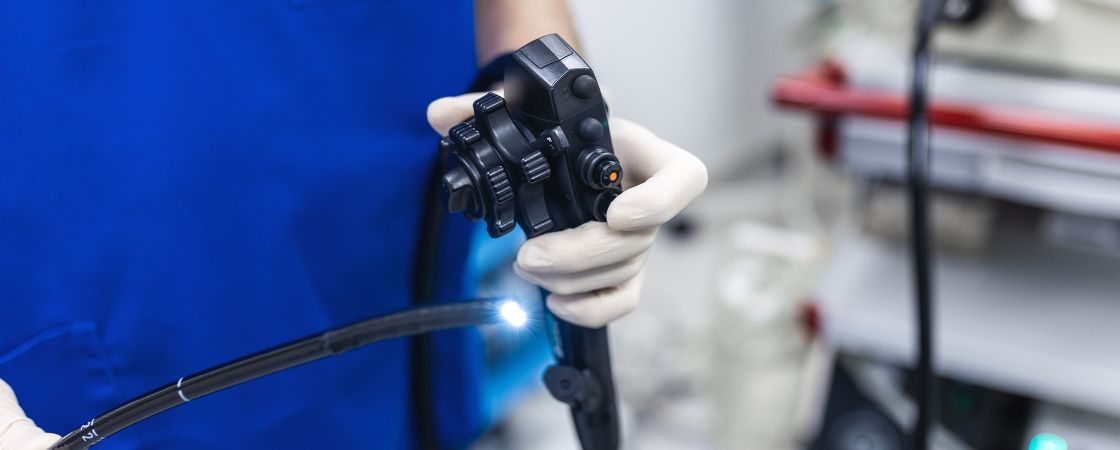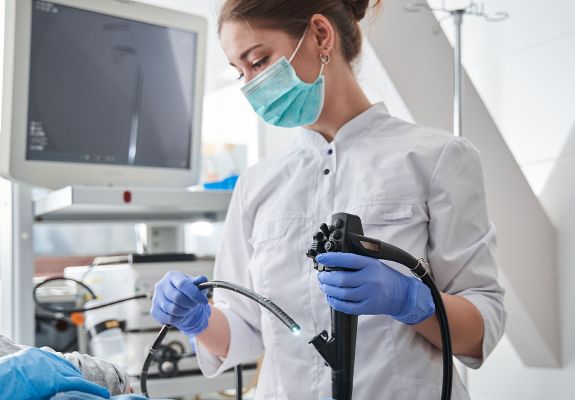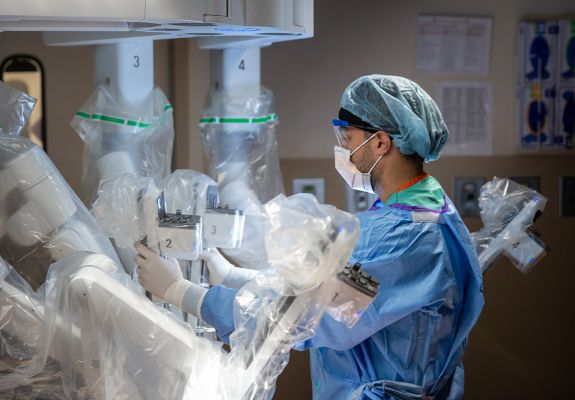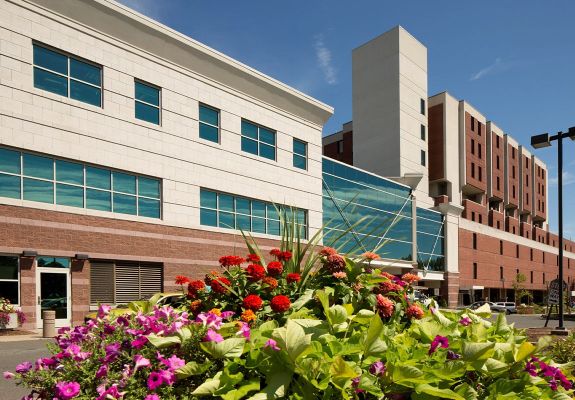Endoscopy uses a specialized camera to view the inside of your organs without surgery, allowing your Bristol Health physician to make an accurate diagnosis.
Search Bristol Health

Endoscopy
Minimally Invasive Technology
Physicians at Bristol Health use the latest, minimally invasive technology to diagnose problems affecting the digestive tract and lungs. Endoscopy uses an endoscope, a thin camera, to examine inside your organs without making a single incision. They can also use specialized tools to take small tissue samples for testing. This safe technique can help you find the answers you need for your health with fewer risks and downtime than surgery.

Expert Care from Bristol Hospital's Endoscopy Department Team
The staff of Bristol Hospital’s Endoscopy Department consists of gastroenterologists, certified gastroenterology registered nurses, surgeons, registered nurses and endoscopy technicians who perform patient assessment, assist with all GI procedures and provide instruction and follow-up for patients. Our highly trained, experienced staff of nurses and technicians have more than 100 total combined years of experience.
Procedures
During all endoscopic procedures, you’ll be sedated and kept comfortable. You’ll be able to return home within an hour of the end of your procedure and return to normal activities the next day. At Bristol Health, we use endoscopy technology for many different diagnostic procedures, including:
Open Access Endoscopy
Open Access Endoscopy allows healthy, asymptomatic patients the opportunity to have a screening colonoscopy booked at Bristol Hospital directly through their primary care physician. Open Access Endoscopy is appropriate when relatively healthy patients need a screening colonoscopy and an office-based gastrointestinal specialty consult may not be necessary.
Colon cancer is one of the leading types of cancer in the United States and is preventable with a screening colonoscopy. Contact us today to schedule your appointment.

For more information about Open Access Endoscopy, please call: 860.585.3945
General Surgery Pre-Admission Testing
Preadmission testing is located on the ground floor of the Center for Surgery and Endoscopy, near the entrance for easy access. Lab work and preparatory discussions help patients properly prepare for both inpatient and outpatient procedures.
Preadmission testing may be done on the following days and times:
Monday and Thursday, 9:00 AM to 5:30 PM
Tuesday, Wednesday and Friday, 8:00 AM to 4:30 PM

The Center for Surgery and Endoscopy
Our state-of-the-art Center for Surgery and Endoscopy is designed with special sensitivity to our patients’ convenience and privacy needs. Beginning with arrival, patients will appreciate the convenience of the dedicated entrance and the canopied drop-off area.
Accompanying family members will find comfort in the large waiting area, including a coffee shop and playroom for children. Once brought into the clinical area, patients will enjoy the privacy and comfort of the bright and cheerful pre- and post-procedure rooms. To heighten comfort and diminish anxiety, rooms include a television for each patient. A dedicated pediatric recovery room allows loved ones the space and privacy needed to meet the unique comfort needs of children.
How Can We Help?
Can’t find what you’re looking for? Need a little more information? We’re happy to help!